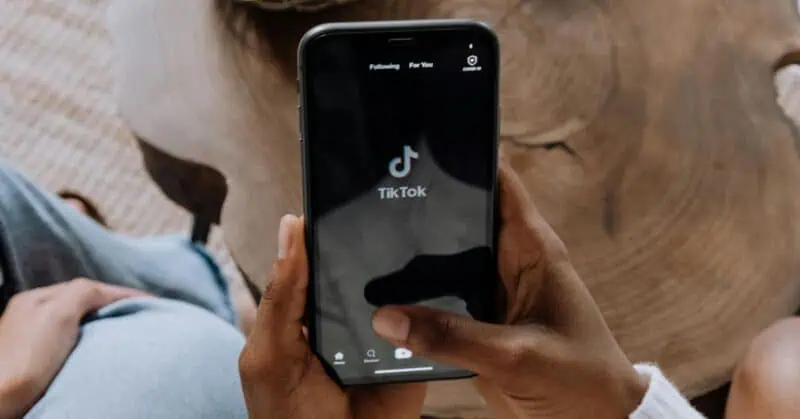The exodus of skilled workers from the tourism industry is one major impact of the pandemic many tourism companies worldwide are still recovering from.
In the Asia Pacific (APAC) region, one of the last regions to re-open to international travel, the shortage is particularly pronounced, with workers at all levels of tourism organizations — from C-level executives to on-the-ground staff like guides and drivers — having moved on to different industries due to the pandemic’s enduring impact on tourism jobs and livelihoods.
However, while some workers may have moved on permanently, others are finding their way back. After years of building a career in tourism with organizations like Resorts World Sentosa, Tripadvisor and Booking.com, Amar Koul is one of countless young tourism professionals who reluctantly left the industry during Covid to find more reliable employment to support his family. He is now re-entering the industry as Go City’s new Regional Director at their APAC office based in Singapore.
Koul — who will be speaking at this June’s Arival Activate conference in Bangkok — spoke with Arival about the state of staff shortages in APAC tourism, what brought him back, and how tourism companies can attract returning and new workers to the industry.
Connection is the Key
According to Koul, connection is the key that drew him back to tourism. Motivated by the need for a more stable environment and reliable income to support a growing family, during Covid he pivoted from his career with experience in attractions, online travel agencies (OTAs) and travel tech to take a job at TikTok.
“It was very interesting but something was pulling at me to get back into the industry I truly loved,” shares Koul. Thanks to connections he had maintained with mentors Baidi Li and Dan Penner from his Tripadvisor days, who had since both moved to Go City, Koul was able to make the transition back into tourism, also joining Go City in a new position that he calls “the perfect storm” of role, evolved responsibilities, and rebuilding old connections.
“I’m really glad to be back and reconnecting meaningfully with all connections and also making new ones.”
Tackling Tourism’s Staff Shortages in APAC
Koul’s story is not an anomaly: throughout the pandemic, a lot of people pivoted into other industries.
“It’s a real problem,” acknowledges Koul. “When I speak to operators and experience providers they are experiencing real staff shortages, having to double shift, having to cut time slots for certain tours.”
However, there are encouraging signs people are returning. “Today it’s much better than it was probably a year ago. A year ago it was forecasted that a lot of the expertise and skill who left the industry would not be coming back,” shares Koul. “Not just on a management front, but right to the ground in terms of tour guides, accountants, bus drivers… a lot of them pivoted into other industries.” Koul estimates APAC is approaching 80% of pre-pandemic levels in terms of staffing, but many are still taking a “look and see approach in terms of whether they will come back to the industry.”
Additionally, Koul is also seeing new talent entering tourism. “People who have minimal experience in the travel industry are also now exploring,” he observes, noting the benefit of new perspectives and skills for innovation. “We are seeing that new group of talent come into the industry as the pandemic comes to a close.”
Join us at an upcoming Arival event to connect, learn, & grow your tours, activities, & attractions business
What Are Prospective Tourism Workers Looking For?
In terms of attracting both returning and new staff to the industry, Koul sees two main factors people are looking for: first, the hybrid work model which has exploded in popularity. “The flexibility of being able to work anywhere you would like,” is a major appeal, he shares, and while he acknowledges this may be more difficult for a small operator to facilitate, “the expectation… to allow workers to work anywhere is still there.”
Second, the ability to be able to learn new skills. “Today we are at a stage in the experiences industry,” shares Koul, where things are changing quickly and knowledge of tech is becoming more and more essential. “If we are able to have that runway to allow people to learn skills along the way… that will appeal a lot to the younger generation,” he predicts.
If incoming workers see a pathway into different areas in the industry, such as the tech pathway Koul himself found, they may see the appeal of even entry-level tourism jobs as positions that can help “future proof them along the way.”
The Often-Overlooked Secret to Connections
For Koul, LinkedIn is one of his secret weapons. “Linked in is an underrated tool in our industry,” shares Koul. “One connection can go a long way,” he says, comparing it to Arival events: Koul attended Arival’s last event in Bangkok in 2019. “If you’re able to find someone or connect with someone, you’re then able to take that connection further,” the impact is underestimated, in Asia Pacific in particular, he observes.
“Keep your profile updated with the latest movements, job openings, partnerships,” he advises. “Build connections, reconnect with old friends… thought leaders and speakers within the tourism industry that you should follow.”
Don’t forget TikTok, either. Having worked for TikTok, Koul also believes it can be an important tool, not only for attracting customers but also staff. “It’s important to diversity your social reach,” he explains. “Through TikTok you are able to reach out to so many more audiences… identify the latest trends that are out there, and really relate it back to what [you] are doing as a business.”
“Tiktok is a wild ecosystem of content, it’s amazing and confusing all at the same time. Anyone, whether you’re Gen-Z, whether you’re a Millennial, whether you’re a Boomer, you should have TikTok on your phone, I think it’s something that everyone should try. Don’t let the short form video scare you.”
Making and Rekindling Connections at Arival
Now that Koul is back in tourism, he is looking forward to attending the next Arival. Having attended the first APAC Arival in Bangkok in 2019, Koul is looking forward to the event’s return in June 2023 as Arival Activate | Bangkok.
“I’m looking to learn, I’m looking to absorb knowledge, I’m looking to meet industry stakeholders old and new,” he shares. “One thing Arival does really well is that thought leadership piece, and that ability to connect deeper with an industry partner.”
“Second, the sessions that Arival conducted in 2019,” he says, “Arival has really taken the effort to localize content, having the right speakers from the right source markets, I think that’s something that Arival does really well.”
Finally, Koul shares he is most looking forward to Arival for the connections. “While Arival has booths… for partners to showcase their offerings, it’s not like a big exhibition,” he reflects. Comparing to other conferences and trade shows he’s attended, “this one is structured in a way where you’re able to talk to everyone and really learn the best from everyone in the industry and connect on a deeper level.”
“Arival gives that runway for conversations to happen instead of just plunking 500 booths for everyone.”
Connect and Learn at Arival Activate | Berlin 2023
Amar Koul will be speaking at Arival Activate | Bangkok in June 2023 on The New Generation of Asian Travelers. Join us for Asia’s leading conference for tour, activity and attraction suppliers to learn and connect, learn more and register here.
Become an Insider Pro Access member today and get access to the full library of Arival research, plus many other benefits such as free consulting sessions, special discounts and 20% off in-person events, starting from $179 per year.
Sign up to receive insights tailored for the in-destination industry as well as updates on Arival.

















